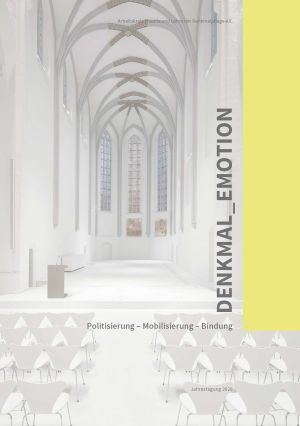Zitationsvorschlag
Veröffentlicht
Vergessene Tote?
Bürgerkriegsdenkmäler in Barcelona im Zeitalter von katalanischen Unabhängigkeitsbestrebungen und globalem Massentourismus
This essay looks at the memory of the Spanish Civil War and the specific memorial culture that emerged from it, focusing primarily on the Catalan tourist metropolis of Barcelona. The goal is to reveal the role that heritage communities play in constructing and deconstructing national, regional and local identities, using the example of Spain. The first part of the essay shows that Spanish memory culture differs strongly from that of its neighboring countries: this is because it is not the Second World War but the Spanish Civil War that represents the central point of reference for the constitution of collective memory. The process of coming to terms with this history continues to the present day – as is evidenced by the recent debate over the relocation of Francisco Franco’s mortal remains and the reshaping of his memorial in the so-called Valley of the Fallen. In the second part of the essay it is argued that the Catalan struggle for independence has resulted in this region following a path of development in its memory politics and memorial culture that is unique in the Spanish context. This reveals itself above all in the fact that the processing of the Franco dictatorship was undertaken much earlier and with more determination here than in other parts of Spain. The concrete ways in which the unique path taken in Catalonia manifests itself in local memory culture are explored in the third part of the essay, which introduces individual monuments and sites of memory in the city of Barcelona. This makes clear that the increasing touristification of Barcelona’s urban spaces is making it ever more difficult to establish and mark out local memory sites as such.








